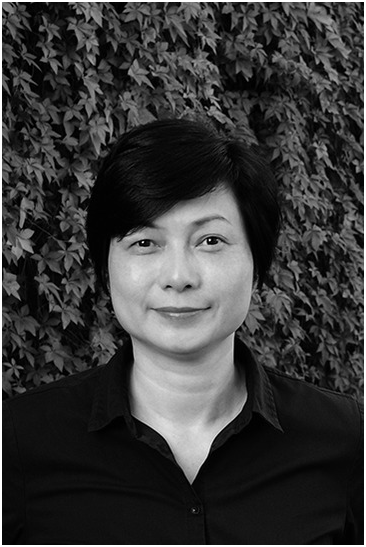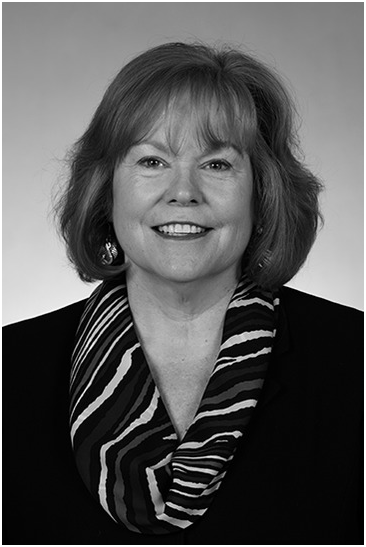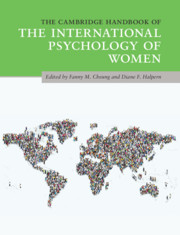Book contents
- The Cambridge Handbook of the International Psychology of Women
- The Cambridge Handbook of the International Psychology of Women
- Copyright page
- Dedication
- Contents
- Figures
- Tables
- Contributors
- Acknowledgments
- Section 1 The Underpinnings of Sex and Gender and How to Study Them
- Section 2 Developmental Perspectives of the International Psychology of Women
- Section 3 Cognitive and Social Factors
- 10 Sex, Gender, and Intelligence
- 11 At the Crossroads of Women’s Experience
- 12 Gender and Personality Research in Psychology
- 13 Selfhood and Self-Construal
- 14 Cultural Influences on Body Image and Body Esteem
- 15 The Not So Subtle and Status Quo Maintaining Nature of Everyday Sexism
- 16 A Gendered Light on Empathy, Prosocial Behavior, and Forgiveness
- 17 The Impact of Gender and Culture in Consumer Behavior
- 18 Evolutionary Roots of Women’s Aggression
- Section 4 Work and Family Issues
- Section 5 Inequality and Social Justice
- Section 6 Health and Well-Being
- Epilogue Some Final Thoughts and Take-Home Messages
- Index
- References
13 - Selfhood and Self-Construal
from Section 3 - Cognitive and Social Factors
Published online by Cambridge University Press: 20 July 2020
- The Cambridge Handbook of the International Psychology of Women
- The Cambridge Handbook of the International Psychology of Women
- Copyright page
- Dedication
- Contents
- Figures
- Tables
- Contributors
- Acknowledgments
- Section 1 The Underpinnings of Sex and Gender and How to Study Them
- Section 2 Developmental Perspectives of the International Psychology of Women
- Section 3 Cognitive and Social Factors
- 10 Sex, Gender, and Intelligence
- 11 At the Crossroads of Women’s Experience
- 12 Gender and Personality Research in Psychology
- 13 Selfhood and Self-Construal
- 14 Cultural Influences on Body Image and Body Esteem
- 15 The Not So Subtle and Status Quo Maintaining Nature of Everyday Sexism
- 16 A Gendered Light on Empathy, Prosocial Behavior, and Forgiveness
- 17 The Impact of Gender and Culture in Consumer Behavior
- 18 Evolutionary Roots of Women’s Aggression
- Section 4 Work and Family Issues
- Section 5 Inequality and Social Justice
- Section 6 Health and Well-Being
- Epilogue Some Final Thoughts and Take-Home Messages
- Index
- References
Summary
An individual’s view of self is a constant interplay between one’s self-referent cognitions, emotions, motivations, and the social world (Hoyle, Kernis, Leary, & Baldwin, 1999). Both gender and culture are important forces that shape what an individual experiences and how such experiences are interpreted, which in turn influence one’s conception of the self. This chapter aims to discuss two important questions on the selfhood and self-construal of women: How does women’s self-definition differ from that of men? To what extent does culture affect women’s self-definition?
Keywords
- Type
- Chapter
- Information
- The Cambridge Handbook of the International Psychology of Women , pp. 179 - 189Publisher: Cambridge University PressPrint publication year: 2020
References
Suggested Readings

Algae K. Y. Au was born and raised in Hong Kong. She is currently a PhD candidate in the Department of Applied Social Sciences at the Hong Kong Polytechnic University. During her undergraduate studies, she was a first-class honors student, a two-time winner of the Scholarship for Outstanding Students, and a recipient of the Outstanding Thesis Award in Psychology, and she was included on the Dean’s Honors List. Her research interests include bilingualism, biculturalism, and intercultural relationships, which have also been the major areas of her publications in the past few years. Guided by her current interest in ecopsychology, her doctoral thesis focuses on the effects of ecological self-construal on psychological and pro-environmental outcomes.

Sylvia Xiaohua Chen is a Professor in the Department of Applied Social Sciences at the Hong Kong Polytechnic University. Her research interests include the social psychology of bilingualism and biculturalism, personality and social behavior in cultural contexts, cultural diversity and mental health, and, more recently, globalization and multiculturalism. She served as an Associate Editor of Journal of Cross-Cultural Psychology and Asian Journal of Social Psychology. She was a recipient of an Early Career Award conferred by the International Association for Cross-Cultural Psychology, Michael Harris Bond Award for Early Career Research Contributions, and Jung-heun Park Young Scholar Award conferred by the Asian Association of Social Psychology. Chen was born in Guangzhou, China and grew up there. She attended college at Sun Yat-Sen University in Guangzhou, and obtained her MA at Santa Clara University in the USA, where she studied and worked for six years. Then she studied for an MPhil and PhD at the Chinese University of Hong Kong. She has remained in Hong Kong for over 20 years. As a social and cultural psychologist, she believes she is influenced by Hong Kong, Mainland Chinese, and American cultures.

Susan E. Cross is a faculty member of the Department of Psychology at Iowa State University. Her current research focuses on the intersection of culture, self, and close relationships. Specifically, she studies how concerns for honor motivate behavior in cultures such as Turkey and southern regions of the USA (funded by the US National Science Foundation). She is also curious about how cultural values, norms, and beliefs influence conceptions of close relationships in East Asian contexts. Her background is eclectic, with degrees in Horticulture and Higher Education, but she found her way to a PhD program at the University of Michigan, where she had the privilege of working with Professor Hazel Markus. She is thankful every day for the opportunity to pursue interesting questions with students and postdoctoral scholars from around the world. Cross was born and raised in Texas, by two natives of the US South. She considers herself a product of an honor culture. When she was a senior in college, her father moved first to Saudi Arabia (for three years) and then to Tokyo (for three years). Visiting these countries sparked her interest in culture, in part because, although both countries were collectivist, non-Western contexts, they differed greatly from each other. Cross is a motherless woman, who has valued the presence of women friends, aunts, and others who filled in the gap for her. She identifies as a Christian; a White woman married to a Hispanic man; a Texan/ Southerner; a mother of boys; a gardener; and many other things.

